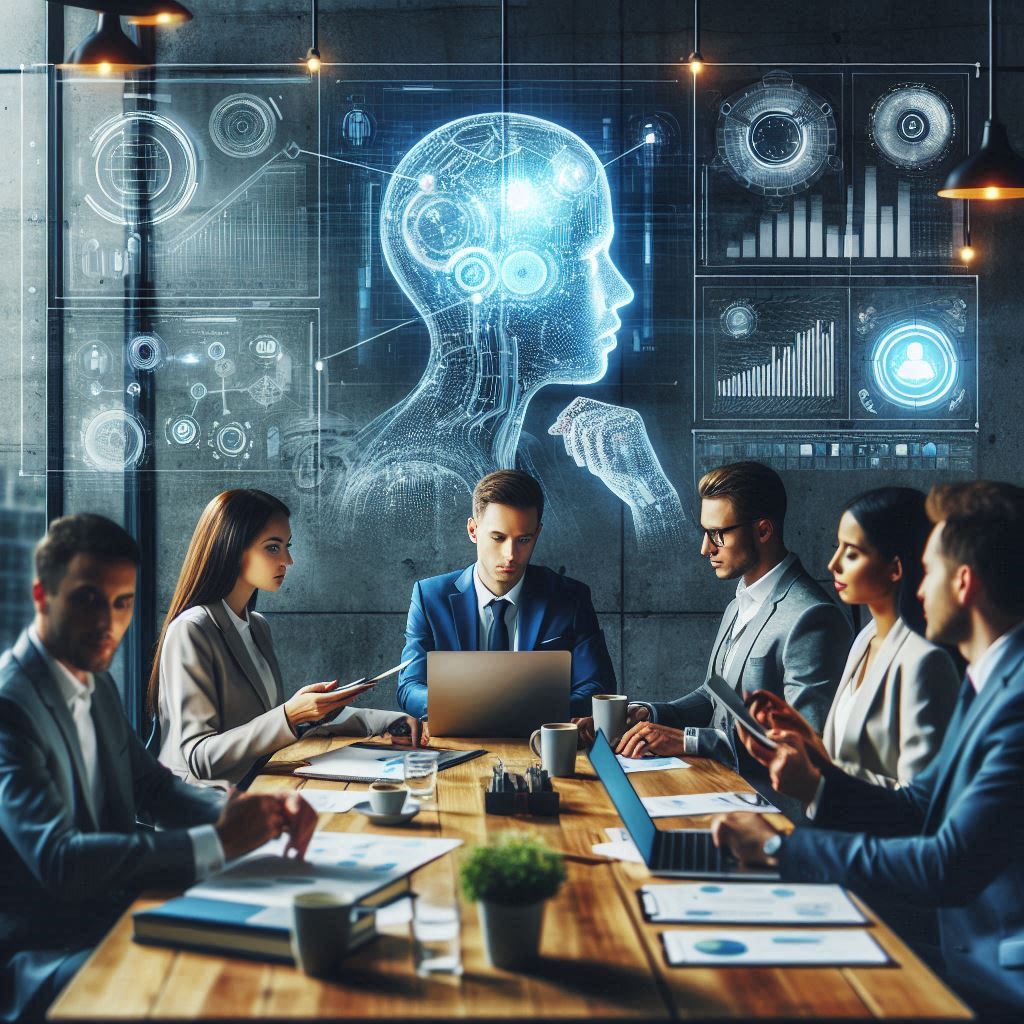AI for Business Growth: Key Trends and Predictions for 2025
AI, AI agent, Digital marketing
Introduction:
As we approach 2025, artificial intelligence (AI) is poised to revolutionize the business landscape in unprecedented ways. Companies that harness the power of AI will likely gain a significant competitive edge, while those that lag behind may struggle to catch up. In this blog post, we’ll explore the key AI trends and predictions that are set to shape business growth in 2025 and beyond.
- AI Integration Becomes Mission-Critical
By 2025, AI will no longer be a nice-to-have technology but an essential component of business strategy. According to PwC’s October 2024 pulse survey, 49% of technology leaders reported that AI was “fully integrated” into their companies’ core business strategy. This trend is expected to accelerate, with AI becoming intrinsic to operations across industries.
To stay competitive, businesses must:
- Conduct formal AI strategy assessments
- Identify areas where AI can reduce costs and create new value
- Develop a portfolio approach that balances quick wins with ambitious long-term projects
- The Rise of AI Agents in the Workforce
One of the most transformative trends we’ll see in 2025 is the widespread adoption of AI agents. These digital workers will augment human capabilities, potentially doubling the effective size of knowledge workforces. AI agents will be capable of:
- Handling routine customer inquiries
- Producing initial drafts of software code
- Turning design ideas into prototypes
To prepare for this shift, companies should:
- Develop new management roles for integrating digital workers
- Rethink workforce strategies to include both human and AI team members
- Provide training to help employees adapt to working alongside AI agents
- Responsible AI Becomes a Business Imperative
As AI becomes more deeply integrated into business operations, the need for responsible AI practices will be paramount. In 2025, companies will need to implement systematic, transparent approaches to AI governance and risk management.
Key considerations include:
- Conducting comprehensive AI risk assessments
- Developing standardized AI-focused risk taxonomies
- Implementing independent validation of AI systems and outputs
Jennifer Kosar, PwC AI Assurance Leader, emphasizes: “Successful AI governance will increasingly be defined not just by risk mitigation but by achievement of strategic objectives and strong ROI.”
- AI as a Catalyst for Sustainability
Contrary to concerns about AI’s energy consumption, 2025 will see AI emerge as a powerful tool for sustainability. AI will help companies:
- Optimize energy usage and reduce carbon footprints
- Automate data collection for sustainability reporting
- Enhance supply chain sustainability
- Accelerated Product Development Cycles
In 2025, AI will dramatically reduce product development lifecycles across industries. By leveraging multimodal AI for design, prototyping, and testing, companies can:
- Reduce time-to-market by up to 50%
- Lower development costs by approximately 30%
- Increase personalization and end-user satisfaction
Scott Likens, PwC US and Global Chief AI Engineering Officer, predicts: “We’re just starting to feel the impact of how the multimodal vision and generation capabilities of AI will change product design and more.”
- Industry-Specific AI Transformations
Different sectors will experience unique AI-driven transformations in 2025:
- Consumer Markets: Enhanced marketing, supply chain management, and customer service through AI-driven personalization and automation.
- Financial Services: AI-native startups and large institutions will lead the way, with laggards at risk of falling behind.
- Health Industries: Accelerated drug discovery, optimized revenue cycles, and AI-assisted diagnoses.
- Industrial Products: Leaders will use AI to improve efficiency and accelerate R&D.
- Industrial Products: Furthermore, industry leaders will leverage AI to improve efficiency, accelerate R&D, and optimize supply chains. For instance, Siemens is using AI to enhance predictive maintenance in manufacturing, reducing downtime and increasing productivity.
- AI-Driven Decision Making
By 2025, AI will play a crucial role in strategic decision-making processes. Consequently, businesses will rely more heavily on data-driven insights to inform their choices. Here’s how this trend will manifest:
- Real-time analytics: AI systems will process vast amounts of data in real-time, providing up-to-the-minute insights for decision-makers.
- Scenario planning: Advanced AI models will simulate various scenarios, helping executives anticipate potential outcomes and make more informed decisions.
- Risk assessment: AI algorithms will identify and evaluate potential risks, enabling businesses to develop more robust risk management strategies.
For example, IBM’s Watson is already being used by companies like Woodside Energy to enhance decision-making processes in complex environments.
- The Evolution of AI Ethics and Governance
As AI becomes more pervasive, ethical considerations and governance frameworks will take center stage. In 2025, we can expect:
- Stricter regulations: Governments worldwide will implement more comprehensive AI regulations, similar to the EU AI Act.
- Ethical AI frameworks: Companies will develop and adhere to robust ethical guidelines for AI development and deployment.
- Transparency initiatives: Businesses will prioritize explainable AI to build trust with customers and stakeholders.
To prepare for this shift, organizations should consider partnering with ethics advisory boards or consulting firms specializing in AI governance.
Conclusion:
In conclusion, the AI landscape in 2025 will offer unprecedented opportunities for business growth and innovation. However, to fully leverage these opportunities, companies must act now to integrate AI into their core strategies, prepare their workforce for collaboration with AI agents, and prioritize responsible AI practices.
By embracing these trends and predictions, businesses can position themselves at the forefront of the AI revolution, driving growth and creating value in ways we’re only beginning to imagine. The future of business is AI-powered, and the time to prepare is now.
Remember, as Satya Nadella, CEO of Microsoft, aptly put it: “AI is going to be one of the trends that is going to be the next big shift in technology. It’s going to be a fundamental change in how we think about software.”
Find out how we can build automated AI agents for you.
Read our latest posts: